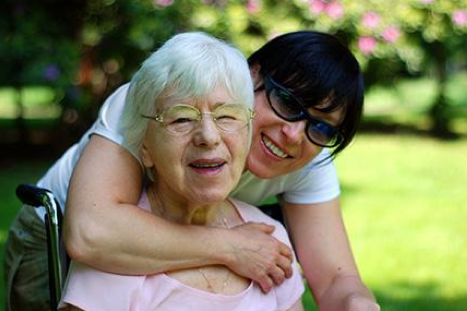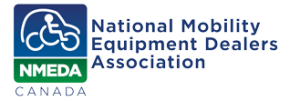
Five tips will make a caregiver’s duties flow a little smoother: Learning about the condition, having the right equipment, seeking out support groups, accepting help when it is offered and patience, patience, patience.
1. Knowledge is power: When a loved one needs around-the-clock care, learn everything about their condition, as knowledge instills power and confidence in whatever you do.
- Talk to their doctor and other healthcare professionals to learn the proper techniques for assisting them, whether it is helping to bathe, lift, transfer or just making them comfortable. All are eager to supply helpful information.
- Visit or call the experts. National organizations have local branches and web sites with a wealth of information. For example, NMEDA.com has information on accessible vehicles and equipment for those with disabilities. It also has important links to help caregivers.
2. The right stuff: From grab bars to a porta-potty and everything in between, there is a solution to make your job easier. Search the web or visit your local medical supply store. Consider renting more expensive equipment (instead of new equipment) or buying it used.
3. You are not alone: Caregiver support and assistance groups flourish online and throughout your community – churches or local charitable groups – where you can learn about options and community resources that you were not aware of.
- Find a local support group of caregivers and you can share feelings of isolation, frustration or friendship.
- Build your own support network of family, friends, clergy and neighbors.
4. No man is an island: Accept assistance whenever it is offered, whether it is personal care or household chores or running errands. It makes the one who offers feel good and takes a little responsibility off your shoulders.
5. Patience: Burn anger with exercise. Build patience with yoga. Or meditation. Or reading. Go to lunch with friends. Whatever activity you find rewarding will help build patience and stave off caregiver burn-out (the #`1 problem with long-term caregiving).
Take care of yourself or you can’t take care of your loved ones.
Online Resources for Caregivers
- Caregiver.com offers information, support and guidance for family and professional caregivers. It offers newsletters, online discussion lists, back issue articles of Today’s Caregiver magazine, chat rooms and an online store.
- National Family Caregivers Assn. (www.nfcacares.org) provides caregivers with support, education and a public voice.
- National Alliance for Caregiving (www.caregiving.org_focuses on issues of family caregiving. Its website has a wealth of resources and information for caregivers.
- Family Caregiver Alliance – National Center on Caregiving (www.caregiver.org) has a huge menu of information and advice for caregivers.
This mobility safety update has been brought to you by NMEDA – the National Mobility Equipment Dealers Association. Need some information on how to make your vehicle wheelchair accessible or upgraded with the latest and most convenient features? Contact a NMEDA dealer in your local area. Your local NMEDA member is an expert in mobility equipment and accessibility!
